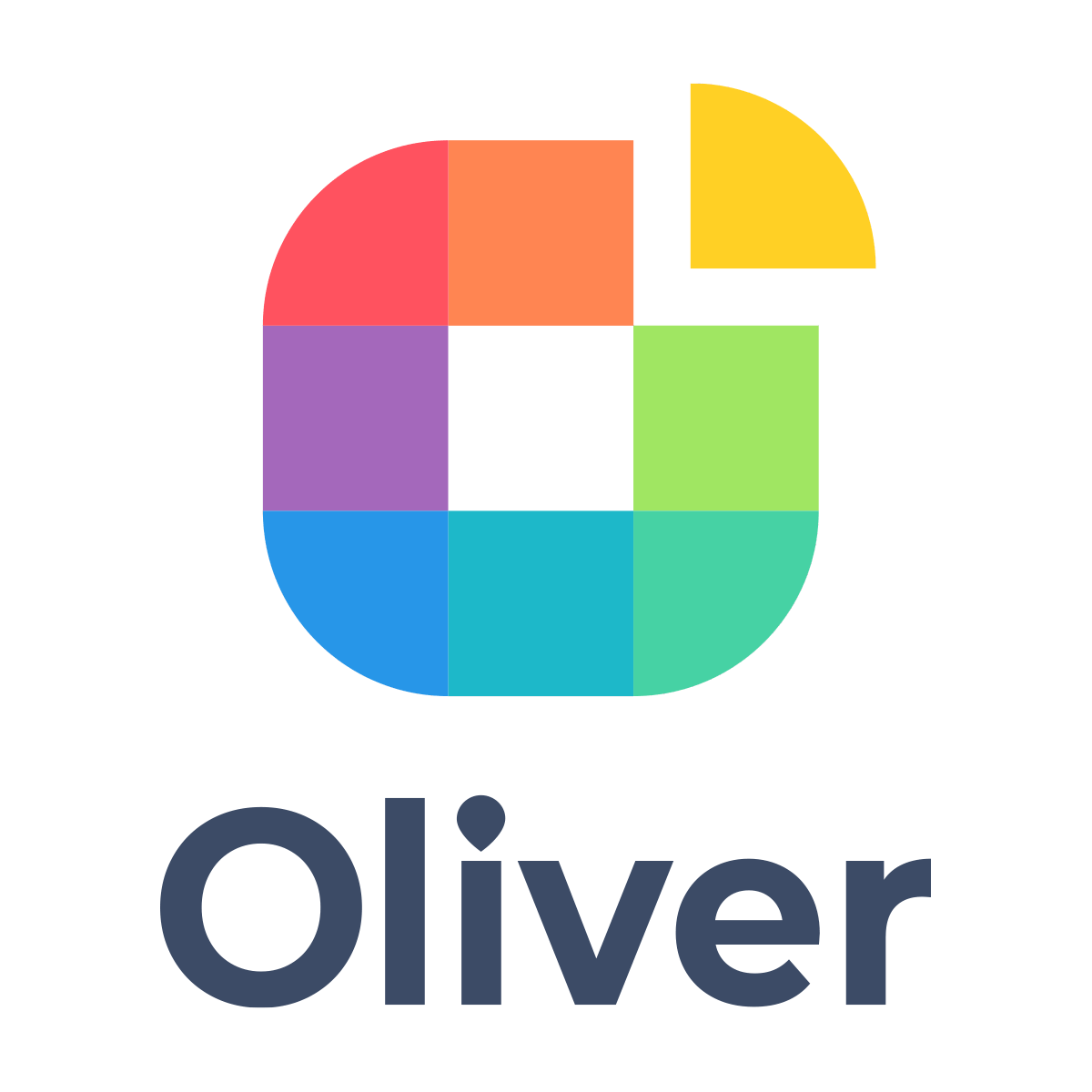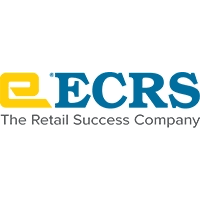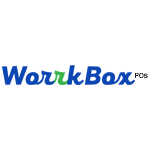Description

Oliver POS

Epos Now
Comprehensive Overview: Oliver POS vs Epos Now
Oliver POS and Epos Now are both providers of point-of-sale (POS) systems, catering predominantly to the retail and hospitality sectors. They share some similar functionalities but target slightly different market needs. Here’s a comprehensive overview of each:
a) Primary Functions and Target Markets
Oliver POS:
Primary Functions:
- Oliver POS is a cloud-based POS system designed to integrate seamlessly with WooCommerce, a popular e-commerce plugin for WordPress.
- It supports omnichannel retail operations by synchronizing online and offline sales.
- Key features include inventory management, customer relationship management (CRM), payment processing, and reporting tools.
- The system can work on various hardware, including desktops, tablets, and smartphones.
Target Markets:
- Small to medium-sized retail businesses that use WooCommerce for their e-commerce operations.
- Businesses looking for a cost-effective way to manage both online and physical store sales in an integrated manner.
Epos Now:
Primary Functions:
- Epos Now offers a comprehensive POS solution for both the retail and hospitality industries.
- It comes with features such as inventory management, employee management, customer loyalty programs, and extensive reporting capabilities.
- The system is cloud-based and offers hardware solutions like terminals, tablets, and card readers.
- Epos Now’s system can integrate with various third-party applications to expand its capabilities.
Target Markets:
- A wide range of small to large retail and hospitality businesses.
- Particularly attractive to businesses that require robust solutions to manage multi-location operations.
b) Overall Market Share and User Base
-
Oliver POS is quite niche due to its specific integration with WooCommerce, and its user base largely consists of businesses that are already established on that platform. This makes Oliver POS a significant player within the WooCommerce ecosystem but with a limited market share in the broader POS industry.
-
Epos Now, on the other hand, has a larger overall market presence. It serves thousands of businesses in multiple countries and regions, making it one of the more prominent names in the POS landscape, especially once considering its adaptable platform that doesn’t limit itself to specific e-commerce integrations.
c) Key Differentiating Factors
-
Integration and Ecosystem:
- Oliver POS is specifically tailored for WooCommerce users. This unique integration is its standout feature, providing seamless synchronization between online and in-store sales activities.
- In contrast, Epos Now is platform-agnostic, making it versatile for different types of businesses not tied to a specific e-commerce environment.
-
Industry Focus:
- While Oliver POS mainly caters to retail with a strong emphasis on e-commerce coordination, Epos Now serves both retail and hospitality, offering features and add-ons specifically for the nuances of each industry.
-
Flexibility and Scalability:
- Epos Now offers greater scalability, supporting multiple locations and larger operations. It is designed to handle complex operations with ease.
- Oliver POS suits businesses focused on simplicity and cohesive integration with WooCommerce, potentially limiting its appeal for more complex or larger-scale operations.
-
Pricing and Cost Efficiency:
- Oliver POS is generally more cost-effective for small to medium businesses, especially for those already using WooCommerce.
- Epos Now, while competitive, might involve higher costs, particularly when add-on services or hardware components are considered.
These differences underline each product's strategic positioning: Oliver POS aligns itself tightly with WooCommerce for integrated online/offline solutions, while Epos Now offers broad industry support and flexibility to accommodate diverse business needs.
Contact Info

Year founded :
Not Available
Not Available
Not Available
Not Available
Not Available

Year founded :
2011
+44 800 294 5945
Not Available
United Kingdom
http://www.linkedin.com/company/epos-now
Feature Similarity Breakdown: Oliver POS, Epos Now
When comparing Oliver POS and Epos Now, both popular point-of-sale (POS) systems, it's important to analyze their core features, user interfaces, and any unique aspects that distinguish them. Here's a breakdown based on those criteria:
a) Core Features in Common
-
Sales Processing:
- Both Oliver POS and Epos Now handle core sales transactions, including processing various payment methods like cash, credit/debit cards, and digital payments.
-
Inventory Management:
- Both systems offer features to manage inventory in real-time, track stock levels, and create alerts for reordering.
-
Customer Management:
- They provide customer relationship management tools to store customer information, purchase history, and enable loyalty programs.
-
Reporting and Analytics:
- Comprehensive reporting tools are available in both systems to analyze sales data, track performance, and generate insights.
-
Multi-platform Accessibility:
- Both Oliver POS and Epos Now support use on various devices such as tablets, desktops, and smartphones, offering flexibility and mobility.
-
Integration Capabilities:
- Both systems have integration capabilities with other software, such as accounting tools like QuickBooks, and eCommerce platforms like Shopify.
b) User Interface Comparison
-
Oliver POS:
- Oliver POS often emphasizes seamless integration with WordPress and WooCommerce, offering a user-friendly interface tailored for users of these platforms. Its design is generally clean and straightforward, aimed at providing an uncomplicated experience for small to medium-sized retail businesses.
-
Epos Now:
- Epos Now is designed with a broader market in mind, offering a more robust and somewhat complex interface that can cater to larger enterprises as well as small businesses. It focuses on versatility with customizable dashboard options, aiming for a balance between functionality and ease of use.
c) Unique Features
-
Oliver POS:
- WooCommerce Integration: Oliver POS is specifically designed to integrate deeply with WooCommerce, making it an ideal option for businesses that operate on WordPress.
- Open Source Flexibility: It offers a more flexible, developer-friendly environment for businesses that need customized solutions within the WooCommerce ecosystem.
-
Epos Now:
- Hardware Solutions: Epos Now provides a wide range of proprietary hardware options, including touchscreen terminals, receipt printers, and barcode scanners, facilitating a more comprehensive onsite POS solution.
- Industry-specific Customizations: It offers tailored solutions for various industries, including hospitality, retail, and leisure, providing specialized features like table management for restaurants or appointment scheduling for salons.
- App Marketplace: Epos Now has a more extensive app marketplace, providing additional third-party integrations and applications across various business needs.
In summary, while both Oliver POS and Epos Now offer comprehensive and comparable POS features, Oliver POS is particularly advantageous for businesses using WooCommerce and seeking flexible, open-source solutions. Epos Now, on the other hand, is beneficial for businesses looking for extensive hardware options and industry-specific features. The choice between the two would largely depend on the specific needs and existing infrastructure of the business in question.
Features

Not Available

Not Available
Best Fit Use Cases: Oliver POS, Epos Now
When evaluating point-of-sale (POS) systems such as Oliver POS and Epos Now, it's important to consider how each system aligns with specific business needs and scenarios. Here's an overview based on your criteria:
a) Best Fit Use Cases for Oliver POS
Oliver POS is a cloud-based point-of-sale solution tightly integrated with platforms like WooCommerce and WordPress, making it an excellent choice for:
-
E-commerce Businesses with Physical Stores: Oliver POS is ideal for businesses that started online, particularly on WooCommerce, and are expanding into physical retail spaces. Its deep integration with WooCommerce ensures seamless inventory management across online and offline sales channels.
-
Small to Mid-Sized Retailers: It caters well to small and medium-sized businesses due to its ease of use, affordability, and straightforward setup process. Retail environments such as boutiques, specialty shops, and smaller franchises could benefit from its capabilities.
-
Businesses Seeking Strong Integration with eCommerce: Companies that rely heavily on WooCommerce for eCommerce operations will find Oliver POS a natural extension for their physical retail operations.
-
Artisans and Pop-up Stores: Due to its mobile capabilities, Oliver POS is also suitable for artisans, pop-up stores, or markets, providing them with flexibility and mobility in sales operations.
b) Preferred Scenarios for Epos Now
Epos Now is known for its flexible, customizable features and strong industry-specific solutions, making it a preferred option in the following scenarios:
-
Hospitality Industry: Epos Now is well-suited for the hospitality sector, including restaurants, cafes, and bars, due to its functionalities tailored to manage reservations, orders, and table service efficiently.
-
Larger Retail Operations: Its scalability and robust inventory management systems make it suitable for larger retailers or chain stores that need a reliable, high-performance POS system.
-
Businesses Requiring Extensive Third-party Integrations: Epos Now offers a wide range of integrations with third-party applications, making it ideal for businesses that require customized POS ecosystems.
-
Franchise Operations: With strong centralized management features, it's an excellent choice for franchise operations looking to maintain consistency and efficiency across multiple locations.
d) Catering to Different Industry Verticals or Company Sizes
-
Oliver POS targets smaller operations, particularly those built on WooCommerce, which may not need the extensive customization or scale offered by larger POS systems. Its market includes retail sectors and service industries like salons or small eateries that benefit from a simple, integrated approach to sales.
-
Epos Now, on the other hand, caters to a broader range of industries, including hospitality, retail, and service sectors, with solutions that scale from small to enterprise-level companies. Its ability to handle complex operations and integrations makes it a versatile choice for a wide variety of business sizes and industry needs.
In summary, choosing between Oliver POS and Epos Now depends largely on business size, industry vertical, and specific operational needs. Oliver POS is best for WooCommerce-centric small to medium retailers, while Epos Now suits businesses needing advanced functionality across multiple locations and industries, including larger hospitality and retail operations.
Pricing

Pricing Not Available

Pricing Not Available
Metrics History
Metrics History
Comparing teamSize across companies
Conclusion & Final Verdict: Oliver POS vs Epos Now
When evaluating Oliver POS and Epos Now, it's important to consider several key aspects such as features, pricing, ease of use, and integration capabilities. Here's a detailed conclusion and final verdict:
a) Overall Best Value
Epos Now generally offers the best overall value when considering a broader range of business sizes and needs. It provides a comprehensive set of features suitable for both small and large businesses, and its scalability and versatility make it a strong contender for retailers and hospitality businesses alike.
b) Pros and Cons
Oliver POS:
-
Pros:
- Seamless integration with WooCommerce, which is ideal for businesses operating on WordPress.
- Intuitive and user-friendly interface, which reduces the learning curve for new users.
- Cost-effective for small to medium-sized businesses looking for basic yet effective POS solutions.
- Offers a solid inventory management system that synchronizes well with e-commerce operations.
-
Cons:
- Limited features compared to more comprehensive systems; might not be suitable for larger enterprises requiring advanced functionalities.
- Its reliance on WooCommerce may not be a fit for businesses not using WordPress.
- Limited offline functionality, which could be an issue for businesses with unstable internet connectivity.
Epos Now:
-
Pros:
- Versatile and scalable, suitable for various industries including retail and hospitality.
- Offers extensive hardware options and integrations, making it a robust choice for complex business needs.
- Strong customer support with comprehensive training resources.
- Provides both cloud-based and standalone terminal options, improving reliability.
-
Cons:
- Higher cost compared to other systems, which could be a barrier for very small businesses on a tight budget.
- Some users report that the system can be complex and require significant configuration.
- Potential for additional costs with premium features and integrations.
c) Recommendations
-
For Small to Medium-sized Businesses Using WooCommerce: Oliver POS is a suitable choice due to its seamless integration and cost-effectiveness. If the primary focus is on e-commerce with WordPress as the platform, Oliver POS offers a smooth and consistent experience.
-
For Larger Enterprises or Diverse Retail & Hospitality Needs: Epos Now is recommended. Its scalability and wide array of features cater to more complex and demanding operations, making it a more robust choice for businesses with diverse needs.
-
Cost Considerations: For businesses needing to keep costs low and manage a straightforward retail operation, Oliver POS presents a less expensive option. However, for those who can invest more, the wide-ranging capabilities of Epos Now could justify the additional expense.
-
Training and Support Needs: If ample training resources and customer support are vital, Epos Now’s offerings in this area may provide more confidence during the setup and operational phases.
Ultimately, the decision might come down to specific business requirements, industry, budget constraints, and existing technical ecosystems. Choose Oliver POS if you prioritize WooCommerce integration and simplicity, and consider Epos Now if you need a more comprehensive and adaptable system with robust support mechanisms.
Add to compare
Add similar companies




